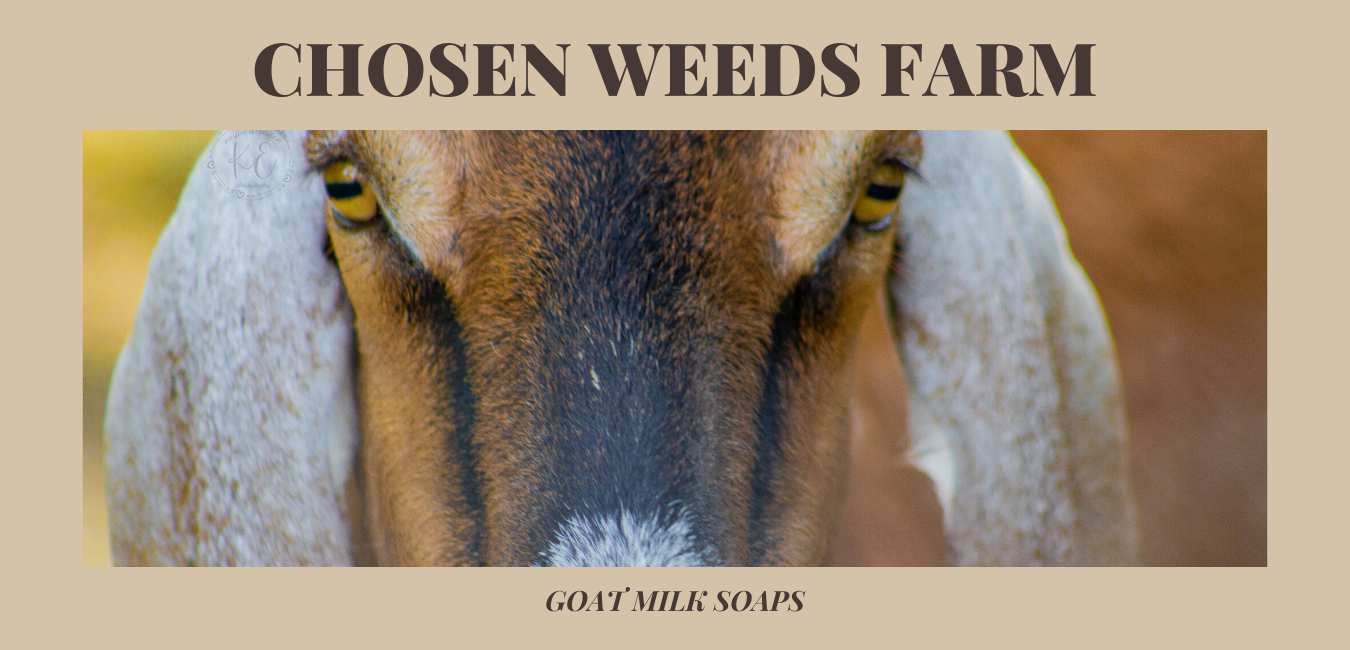Are You Getting What You Pay For In Your Goat Milk Soap?

4 Reasons Raw Goat Milk Soaps are Superior
“You have goats; you have GOT to make some goat milk soap.” This is what my friend, who had taught me to make goat milk soap, said to me one day.
“Well, I don’t know…..It takes all this time and I would rather just have you make it and I’ll buy it from you wholesale and then sell it.”
“You can’t have a goat farm and not make soap!” she said emphatically.
And then I tried it for myself, and I was hooked.
I’ve talked about the benefits of goat milk soap HERE, but now I want to address why we use raw goat milk and not powdered goat milk or goat milk and water. You may not realize that some soap makers, who say that they are making a goat milk soap, maybe using powdered and/or pasteurized goat milk. In fact, the individual that taught me to make soap had used powdered goat milk before she found us. After using the fresh goat milk, there was no turning back for her. The creaminess and final product was far superior.
I will talk about the advantages in a moment, but first let me first explain that I understand that some soap-makers do not have access to raw goat milk, nor do some want the responsibility of owning their own animals.
It is, after all, a lot of work. I get that.
My concern is when crafters “pass off” their soaps, made from powered goat milk, as equal to the high quality of those made from raw goats’ milk.
It’s not, and here is why:
- The chemical structure of powdered milk has been altered during the drying process, including protein degradation. Pasteurization (powdered milk will go through the pasteurization process) destroys all microbes in milk. Additionally, according to Sally Fallon, a nutritional researcher and author of “Nourishing Traditions,” pasteurization alters milk’s amino acids; promotes rancidity of fatty acids; destroys vitamins A, D, C and B12; and reduces the minerals calcium, chloride, magnesium, phosphorus, sodium and sulphur, as well as many trace minerals [2]. The proteins and fats in the milk are essential for a creamy, moisturizing soap. You will want to make sure that RAW goat milk is used–that way there will be silky, smooth skin for all no matter the scent you chose.
- While powdered milk does have a longer shelf life than raw milk (which is an advantage for many), freshness still must be checked. Any human error in storage can result in a bad batch of milk (our milk is kept frozen until I am ready to use it in soap making).
- Some soap-makers may not be using that much goat milk (always ask the crafter how his/her soaps are made). I have seen “recipes” by which the majority of the soap ingredients was water and an only a few teaspoons were goat milk. We replace ALL of the water with raw goat milk. This gives you a highly nourishing and amazing lather that our customers love.
- Powdered milk may also contain added ingredients that we don’t want our soaps. These include calcium chloride, citric acid and sodium citrate, sodium salts of ortho-phosphoric acid, and butylated Hydroxy anisole [1].
You get what you pay for. Our soaps cost a bit more because of the quality ingredients we use and because of the costs of producing the milk. We have to feed and care for our animals in such a way that they produce the best product possible.
There is also beauty in each bar. We never know what it is going to look like until each bar is cut and that is half the fun. It’s never perfect, and frankly, we don’t want it that way. Each bar from the same batch will be different looking. They earthy, raw, and real…Just the way we like to live life.
Wanna read what people are saying about our soaps? HERE are our Facebook reviews or just let this picture speak for itself. These results happened in less than two weeks.

Sources:
- https://www.researchgate.net/post/What_are_the_differences_between_powdered_milk_and_fresh_milk
- https://www.livestrong.com/article/323470-advantages-disadvantages-of-pasteurized-milk-powdered-milk/
